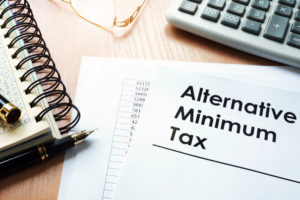Economic Impact Payments: What you need to know?

No action needed by most people at this time!
WASHINGTON — The Treasury Department and the Internal Revenue Service today announced that distribution of economic impact payments will begin in the next three weeks and will be distributed automatically, with no action required for most people. However, some seniors and others who typically do not file returns will need to submit a simple tax return to receive the stimulus payment.
Who is eligible for the economic impact payment?
Tax filers with adjusted gross income up to $75,000 for individuals and up to $150,000 for married couples filing joint returns will receive the full payment. For filers with income above those amounts, the payment amount is reduced by $5 for each $100 above the $75,000/$150,000 thresholds. Single filers with income exceeding $99,000 and $198,000 for joint filers with no children are not eligible.
Eligible taxpayers who filed tax returns for either 2019 or 2018 will automatically receive an economic impact payment of up to $1,200 for individuals or $2,400 for married couples. Parents also receive $500 for each qualifying child.
How will the IRS know where to send my payment?
The vast majority of people do not need to take any action. The IRS will calculate and automatically send the economic impact payment to those eligible.
For people who have already filed their 2019 tax returns, the IRS will use this information to calculate the payment amount. For those who have not yet filed their return for 2019, the IRS will use information from their 2018 tax filing to calculate the payment. The economic impact payment will be deposited directly into the same banking account reflected on the return filed.
The IRS does not have my direct deposit information. What can I do?
In the coming weeks, Treasury plans to develop a web-based portal for individuals to provide their banking information to the IRS online, so that individuals can receive payments immediately as opposed to checks in the mail.
I am not typically required to file a tax return. Can I still receive my payment?
Yes. People who typically do not file a tax return will need to file a simple tax return to receive an economic impact payment. Low-income taxpayers, senior citizens, Social Security recipients, some veterans and individuals with disabilities who are otherwise not required to file a tax return will not owe tax.
How can I file the tax return needed to receive my economic impact payment?
IRS.gov/coronavirus will soon provide information instructing people in these groups on how to file a 2019 tax return with simple, but necessary, information including their filing status, number of dependents and direct deposit bank account information.
I have not filed my tax return for 2018 or 2019. Can I still receive an economic impact payment?
Yes. The IRS urges anyone with a tax filing obligation who has not yet filed a tax return for 2018 or 2019 to file as soon as they can to receive an economic impact payment. Taxpayers should include direct deposit banking information on the return.
I need to file a tax return. How long are the economic impact payments available?
For those concerned about visiting a tax professional or local community organization in person to get help with a tax return, these economic impact payments will be available throughout the rest of 2020.
Where can I get more information?
The IRS will post all key information on IRS.gov/coronavirus as soon as it becomes available.
The IRS has a reduced staff in many of its offices but remains committed to helping eligible individuals receive their payments expeditiously. Check for updated information on IRS.gov/coronavirus rather than calling IRS assistors who are helping process 2019 returns.
GROCO remains open and available to answer tax, family office and implications of COVID-19 pandemic.
What’s New With the Alternative Minimum Tax?
What’s New With the Alternative Minimum Tax? The Tax Cut and Jobs Act affected numerous portions of the nation’s tax law. However, one part that hasn’t been discussed much is its effect on the Alternative Minimum Tax (AMT). The AMT has been around since 1969 and its purpose has always been to make sure that…
The 5 Must-Have Leadership Traits for Executives
The 5 Must-Have Leadership Traits for Executives If you’re in an executive position then it’s a given that you’re a leader, right? Well, in reality, just because you carry an executive title that doesn’t make you a true leader. In fact, in order to be a real leader, you need to develop and cultivate certain traits…
Beyond the Game: How One Coach Helps Provide Better Socioeconomic Opportunities For Her Team.
Rose Shoen is a semi pro soccer player in the Women’s Premier Soccer league. She received all star selection in 2016 and 2017. She also holds a C national USSF coaching license and founded her own men’s soccer franchise, Azteca FC in 2013. She is the only female owner/manager/coach in the San Francisco Soccer Football League’s history. Rose also works coaching high school youth from low income minority groups with the objective to help them receive college scholarships. Many of these players
Muse Me: Making “Old Art” Cool | Heather Gokhman
Heather Gokhman is a member of the International Society of Appraisers, holds a Masters degree in Art Business from Sotheby’s Institute of Art in New York City, and a Bachelors degree in Art History from the University of Southern California. Prior to opening State of the Art Appraisals, Heather was a partner at EG Art Brokers, a fine art appraisal and auction brokering company and Assistant Director at contemporary art gallery, Avran Art, in Laguna Beach. Heather has also worked at Montgomery




